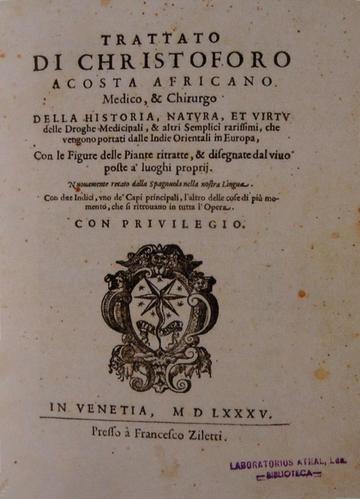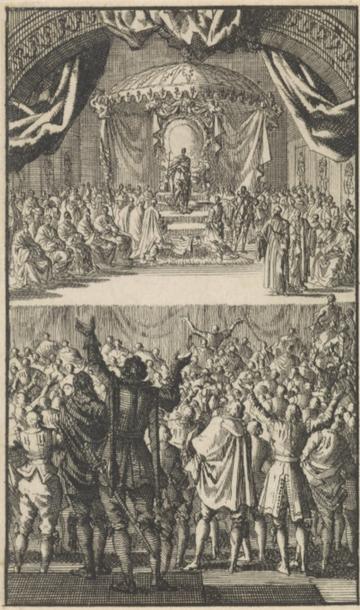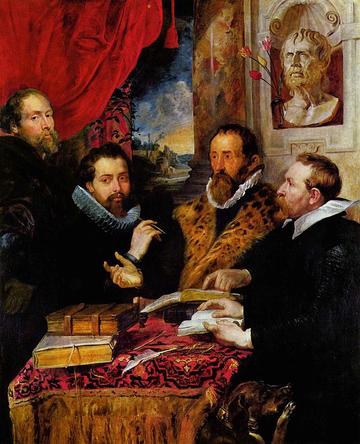A Natural Match: Iberian Parliamentary Cultures and Republicans of Letters
In 1585, an Italian translation of Cristóvão da Costa’s Treatise of the Drugs and Medicines of the East Indies was printed in Venice as part of a series of Iberian natural histories. Underpinning the interest in Iberian texts in a republican city with imperial dreams was the role of Iberian parliamentary assemblies. Indeed, one signal of the importance of those assemblies was the fact that da Costa’s Italian translator retained his dedication of the treatise “to the Senate of the city of Burgos.” The Portuguese physician, soldier, and naturalist (c. 1525-1594) had benefited from the patronage of the Burgos assembly. The dedication rendered this client-patron relationship legible in republican Venice, and the wider ‘Republic of Letters’.
In cases such as Da Costa’s, it was political assemblies that welcomed and fostered the newest scientific advances and knowledge. The product of botanical prospections he had conducted from Goa, Da Costa’s treatise had first come out in Burgos in 1578. His dedication acknowledges that it was the “public recognition” and “salary” received from the “Republic” (i.e. Burgos) which allowed him to publish his work. This dedication illustrated the close connection of Portuguese Asia to the Kingdom of Castile and the Spanish monarchy. Making this connection, however, required the intervention of a municipal body. For Da Costa, it was natural to conceive of his “true portrait” of Asian flora and fauna as part of his services to a Castilian city, and to place it under the protection of the city’s Senate. For the readers of the Italian translation, Da Costa’s use of republican rhetoric accentuated how Venetian politics of expansion overlapped with its republican institutions and symbols.

Title page of Christophoro Acosta, Della historia, natura, et virtu delle droghe medicinali & altri semplici rarissimi, che vengono portati dalle Indie Orientali in Europa..., Venice: Francesco Ziletti, 1585.
Da Costa’s address to the “Senate of Burgos” invites a reflection on how political assemblies interacted with early modern communities of knowledge. One of many such appeals, it can form the basis for a wider study of how political assemblies assisted the production and circulation of knowledge across the international community of scholars — the Republic of Letters. I wish to draw particular attention to how Iberian assemblies patronized historical writing. As parliamentary cultures provided opportunities for scholars to consolidate their livelihoods, the assemblies also promoted the public utility of their knowledge.
Historical analysis of political assemblies in the Iberian monarchies has focused primarily on the Cortes system in kingdoms such as Castile and Aragon. The Cortes were considered the guardians of the traditions of the cities (which possessed a voto en cortes). New sovereigns had to take an oath before such assemblies to secure urban privileges and rights. As assemblies, Cortes were also a platform for petitions to the King. Recent studies have underlined the role that such political assemblies played in the formation of republican traditions and urban or regional identities. The multiplicity of attendees from various ranks and occupations reveals how deeply intertwined the Cortes were with both the royal court and diverse constituencies. Representatives of the cities (procuradores) and of military orders, as well as ecclesiastics, jurists, and secretaries of the King and the Cortes populated these assemblies, generating unprecedented opportunities for communication across a wide range of institutions. Republicans of Letters took full advantage of these communication opportunities: many belonged to the institutions represented in Cortes or were familiar with its representatives.

The coronation of King Philip II as king of Portugal in 1581, etch by Jan Luyken, from Gregorio Leti, Het Leven van Filips de II, Koning van Spanien, translated by N.J. Wieringa, The Hague: Engelbreght Boucquet, 1699, Rijksmuseum, Amsterdam.
A key reason for the connection between scholars and assemblies was that Cortes promoted historical research. For example, the Cortes de Castilla called for the writing of a history of the Kingdom. Such a history was to be written from the perspective of its people (i. e. local nobles) so that their history could be added to the narrative centered around the King’s reputation and glory. When compiling the actas of the Cortes de Castilla, demands for history-writing were made in meetings held in 1523, 1525, 1528, 1563. These dates reveal that such demands to write a history of the kingdom were related to conflict for instance after the revolt of the Castilian Comuneros (1520-21) and amid tensions that led to the Rebellion of the Alpujarras between 1568 and 1571. Apparently, one way in which assemblies managed political conflict was through the sponsorship of knowledge production.
The Cortes were concerned with offering a locally-based and balanced view of the political relationships that made up the core of the social and territorial diversity of Castile. In the seventeenth century, the Cortes pushed even more often for the publication of histories and required constant updates to accommodate the fast-changing narratives of present realities. For example, Diego Sarmiento de Acuña, first Count of Gondomar (1567-1626) and Spanish ambassador at the court of James I of England, was solicited by the Cortes to write a history of the military orders of Castile. As an expert in urban governance and a patron of scholars affiliated to the order of Calatrava in the city of Guadalajara, Gondomar was the ideal candidate for the task. It was the Cortes who recognized and activated this potential. Around the same time, the royal historian of Castile and the Indies, Antonio de Herrera y Tordesillas (1549-1625), petitioned the Cortes to sponsor his General History of the World and the new volumes of his General History of the Deeds of the Castilians in the Islands and Lands of the Ocean Sea (known as The Decades). Herrera found in the Cortes a patron for his work on the contemporary history of the Spanish monarchy from the perspective of the global deeds of its “people” (i. e. Castilians). Following up on Herrera’s requests, the Cortes enquired whether the assembly had ever supported an historian in this way. Although the procurators claimed not to have found a single precedent, Herrera obtained the support of the Cortes. This materialized just as his position as one of the royal historiographers was being undermined by the King’s first minister (valido). Thus, the Cortes provided complementary and alternative routes for the production and dissemination of knowledge.
The Cortes of Castile promoted a wide range of intellectual interests. They explored the contributions that men of letters could offer to contemporary affairs and social reforms. Historiographers such as Herrera were well-known participants in the emerging arbitrista culture. Arbitristas provided a series of reform projects to the monarchy through memoriales which were collected from different parts of the Iberian empire. However, arbitrismo was not intended only for the monarch. For example, the Cortes relied on the services of Pedro de Valencia (1555-1620), who had been appointed as royal historiographer. Through the Cortes, Valencia found opportunities to put his humanist skills to public use, becoming involved in Juntas (special commissions) charged with issues such as food supplies and taxation on bread. Iberian reform cultures thus thrived with the help of political assemblies such as the Cortes, while, at the same time, it was through these institutions that humanists such as Valencia could deploy the resources they gained through their correspondence with international scholars.
The Cortes of Aragon, traditionally ambivalent about the Spanish monarchs, supported the production of historical knowledge even more strongly. In 1547 they institutionalized the title of the Chronicler of the Kingdom, a position they awarded to Jerónimo de Zurita in 1548. Confusingly, in Castile, the same title of Chronicler of the Kingdom (also granted by the Cortes) was entangled with the nominally distinct title of Royal Historiographer – making it hard to distinguish between the history of Castile and of the Spanish monarchy in general. This confusion fueled complaints from within the other kingdoms. Nonetheless, men of letters such as Zurita used the appointments conferred by the representative assemblies to collaborate with colleagues working in the other territories. Meanwhile, the Cortes secured some control over the production of historical writings. Zurita, for example, had to present his draft of the Annales of the Crown of Aragon to the Cortes when discussing its publication and financing. This model was later used by Herrera when he argued for additional financial support, reminding the Castilian Cortes that Aragon printed “at its own costs the works of its chronicler”. Furthermore, in addition to scholarly publication, parliamentary interventions contributed to the reorganization of archival collections. For example, the Cortes of Castile weighed in on the appointment of the archivists who oversaw the royal archives of Simancas. Thus, beyond their relationship with individual historians, the Cortes contributed to the preservation practices which grew up around early modern archival cultures.
These examples show how far parliamentary and knowledge cultures overlapped in the early modern period. Patronage practices were beneficial for both Republicans of Letters and political assemblies. As we have seen, assemblies such as the Cortes provided vital resources to scholars, by enhancing their fame and securing their material welfare. It was through their contacts with such assemblies that Republicans of Letters expanded their networks and got a better sense of the contractual nature of the monarchical systems in which they lived. The Cortes provided opportunities to meet with diplomats, members of religious and military orders, royal secretaries, or jurists who were in touch with scholars beyond the Iberian monarchies. These assemblies thus boosted the circulation of knowledge, above all historical knowledge, by reinforcing awareness of and respect for the public nature of intellectual work. It would be important to explore how the Cortes, among other assemblies, fostered contacts among men of letters living in different parts of the Iberian monarchies. For example, it is well-known that both the Flemish philosopher, Justus Lipsius (1547-1606) and the painter Peter Paul Rubens (1577-1640) cultivated correspondents in Spain, Gondomar and his clients prominent among them. What is less well-known is how these men came into contact and how the Lipsian neostoic philosophy merged with the practical concerns of Iberian arbitristas.

Group portrait showing the painter Peter Paul Rubens (far left) and the philosopher Justus Lipsius (second from right), from Peter Paul Rubens, The Four Philosophers, Pitti Palace, Florence.
Political assemblies played a crucial role in setting up the communication channels that allowed Iberian men of letters to be in conversation with the broader European Republic of Letters. Interactions between the Republic of Letters and parliaments cultivated an acute sense of the public utility of scholarly works, while political assemblies provided the practical grounds for scholars to consolidate and widen their networks of information. Such interactions were fundamental in a world experiencing continuous civil and confessional conflicts and that felt the irrepressible desire for reform born of a universal commitment to the public good. These ideas and practices were transmitted by the Northern European stars of the Republic of Letters, such as Lipsius or Rubens, but they were also cultivated by a series of Iberian figures, who, from different intellectual, religious and political positions, shared a like civic sense of and interest in human life, nature, and society.
Fabien Montcher, Assistant Professor, Saint Louis University.


